79 items found: Search results for "distributed" in all categories x


January 25, 2017 | Cassandra
One of the simplest and best-understood models of computation is the Finite State Machine (FSM). An FSM has fixed range of states it can be in, and is always in one of these states. When an input arrives, this triggers a transition in the FSM from its current state to the next state. There may be several possible transitions to several different states, and which transition is chosen depends on the input.
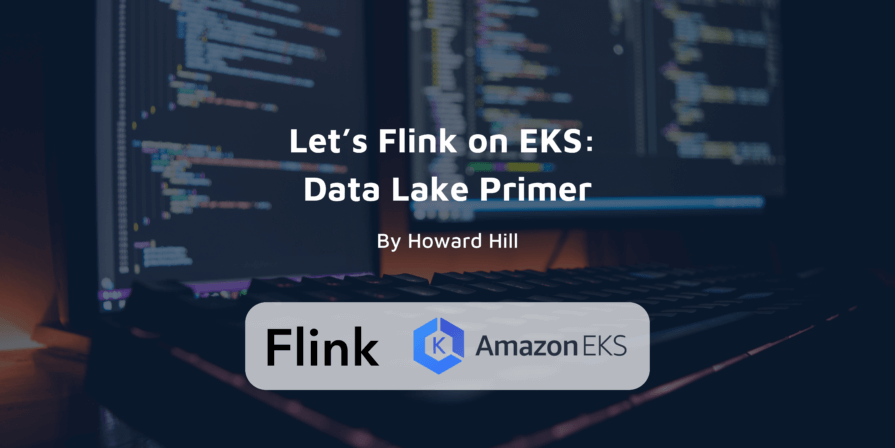
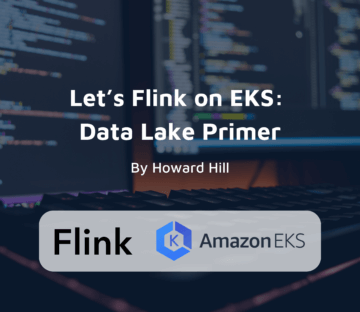
November 22, 2023 | Blog, Data Analysis
Check out the latest blog by Our Senior Consultant Howard Hill where he offers an engineer’s guide to streamlining real-time data using an open-model infrastructure.
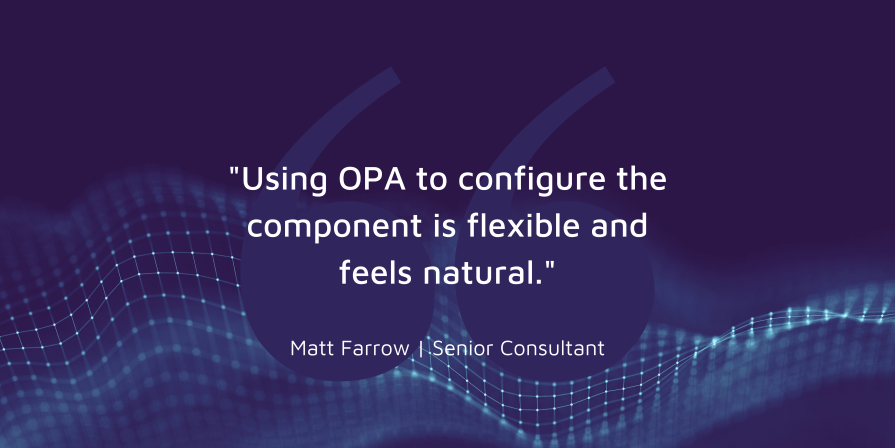
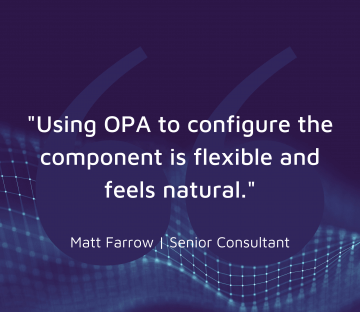
Read Matt Farrow’s blog as he explores the potential for using Open Policy Agent to filter and mask data being sent to and read from Apache Kafka.

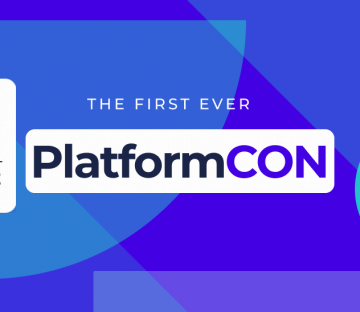
May 26, 2022
Our CEO/CTO Nicki Watt shares about her upcoming talk at PlatformCon 2022.

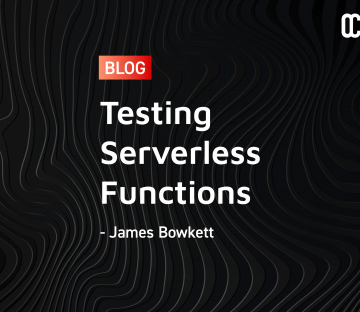
February 11, 2022 | AWS, Cloud, GCP, Kubernetes, Microservices, Open Source, Software Consultancy
Serverless functions are easy to install and upload, but we can’t ignore the basics. This article looks at different strategies related to testing serverless functions.
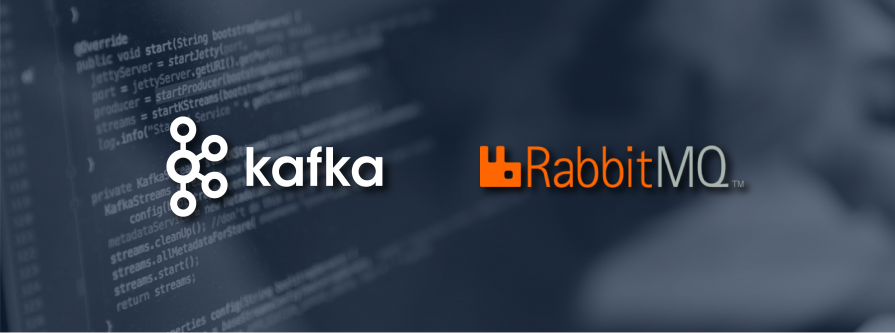
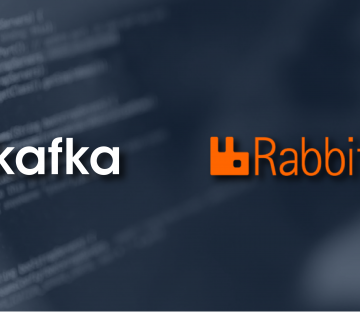
July 20, 2021 | Blog, Data Engineering, Kafka
Message and event-driven systems provide an array of benefits to organisations of all shapes and sizes. At their core, they help decouple producers and consumers so that each can work at their own pace without having to wait for the other – asynchronous processing at its best.
In fact, such systems enable a whole range of messaging patterns, offering varying levels of guarantees surrounding the processing and consumption options for clients. Take for example the publish/subscribe pattern, which enables one message to be broadcast and consumed by multiple consumers; or the competing consumer pattern, which enables a message to be processed once but with multiple concurrent consumers vying for the honour—essentially providing a way to distribute the load. The manner in which these patterns are actually realised however, depends a lot on the technology used, as each has its own approach and unique tradeoffs.
In this article we will explore how this all applies to RabbitMQ and Apache Kafka, and how these two technologies differ, specifically from a message consumer’s perspective.
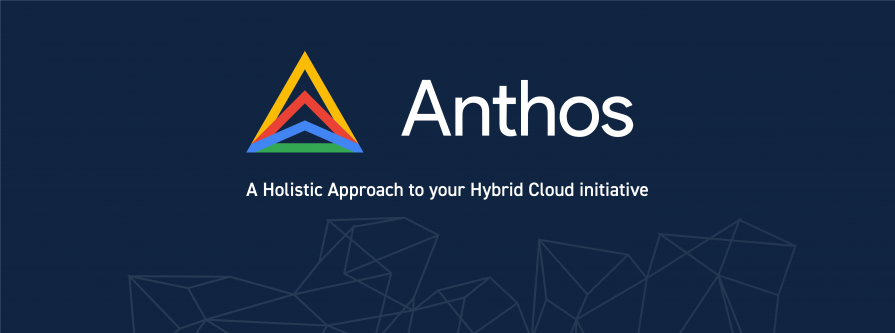
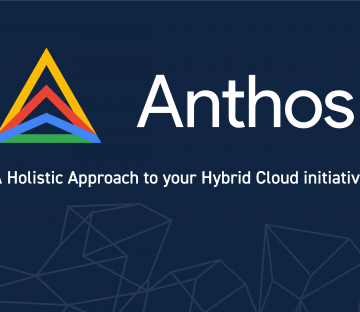
February 17, 2021 | Blog, Cloud, Cloud Native, GCP, Open Source
Multi-cloud is rapidly becoming the cloud strategy of choice for enterprises looking to modernise their applications.
And the reason is simple – it gives them much more flexibility to host their workloads and data where it suits them best.
In this post, we focus on Google’s application modernisation solution Google Anthos and the role it can play in your cloud transformation strategy.
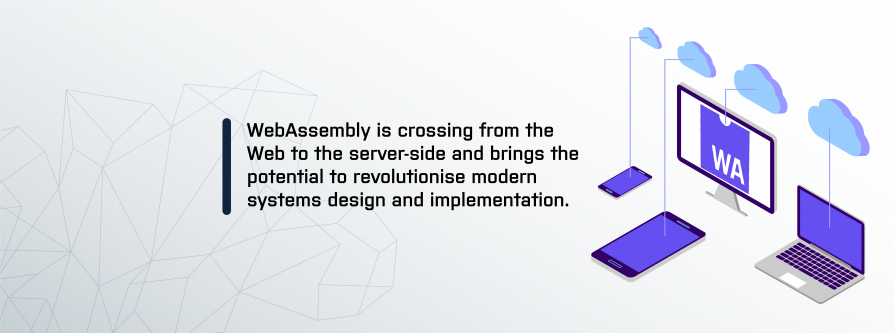
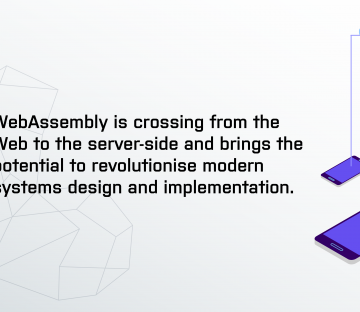
December 11, 2020 | Cloud, Cloud Native, Kubernetes, Microservices
“WebAssembly is a safe, portable, low-level code format designed for efficient execution and compact representation.” – W3C
In this blog, I’ll cover the different applications of Wasm and WASI, some of the projects that are making headway, and the implications for modern architectures and distributed systems.
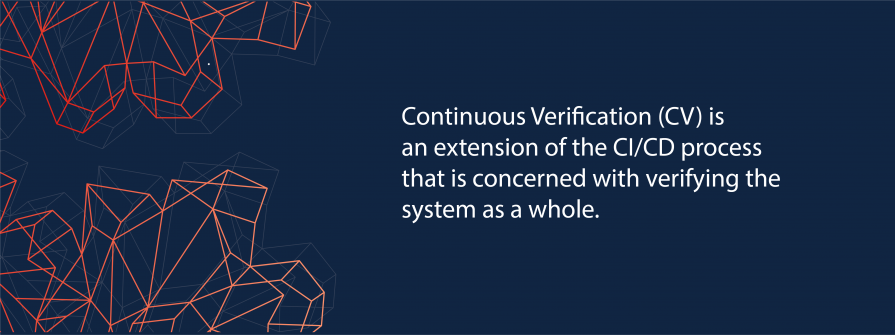
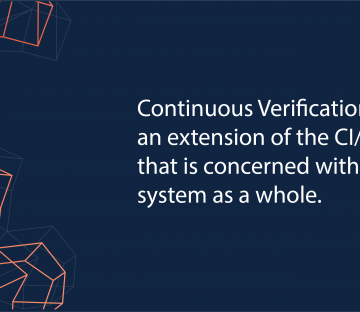
October 15, 2020
Continuous Verification is a term that is starting to pop up from time-to-time… but what does it mean? Well… according to Nora Jones and Casey Rosenthal, authors of O’Reilly’s Chaos Engineering books,
“Continuous verification (CV) is a discipline of proactive experimentation, implemented as tooling that verifies system behaviors. This stands in contrast to prior common practices in software quality assurance, which favor reactive testing, implemented as methodologies that validate known properties of software. This isn’t to say that prior common practices are invalid or should be deprecated. Alerting, testing, code reviews, monitoring, SRE practices, and the like—these are all great practices and should be encouraged”
Over the course of this post, we will unpack this statement: to understand what is behind it and what it might mean for your development process.
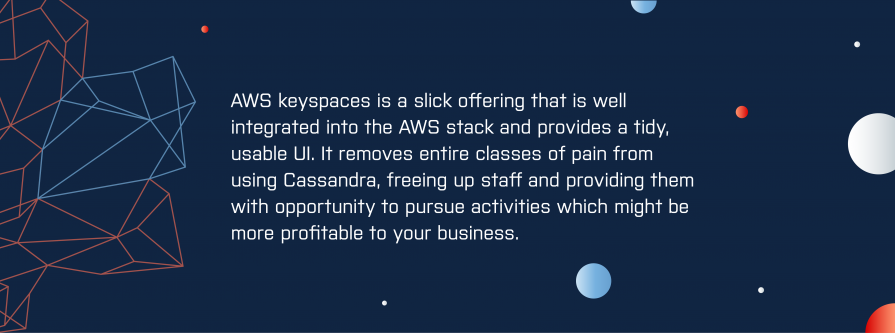
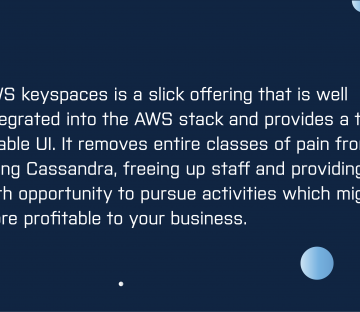
September 22, 2020 | AWS, Blog, Cassandra, Cloud, DevOps, Open Source
With the upcoming Cassandra 4.0 release, there is a lot to look forward to. Most excitingly, and following a refreshing realignment of the Open Source community around Cassandra, the next release promises to focus on fundamentals: stability, repair, observability, performance and scaling.
We must set this against the fact that Cassandra ranks pretty highly in the Stack Overflow most dreaded databases list and the reality that Cassandra is expensive to configure, operate and maintain. Finding people who have the prerequisite skills to do so is challenging.

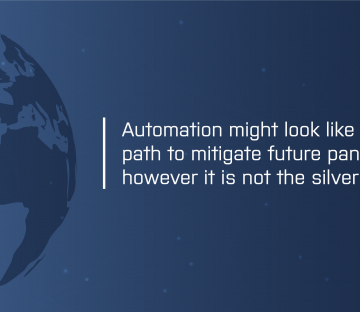
At the time of this post, the UK is making steps to exit from an unprecedented lockdown measures for the Coronavirus. Much of the UK workforce are still making efforts to work-from-home with mainly key workers operating – at risk – in public. Many industries have shut down completely. Consequently, many businesses are reflecting on what happens next and how do we better mitigate future pandemic events?


October 8, 2019 | Cloud, Cloud Native, Culture
Following on from the last two blogs by Stuart (who shared highlights for day 1) and Trent (who shared highlights from day 2), I will conclude with mine on CloudNative London 2019 Day 3.
The Cloud Native landscape can be bewildering, and not only for newcomers. As a traveller on the Cloud-native journey, I have sometimes been overwhelmed by the number of products and projects. This is why I took hold of the opportunity to go to Day 3 of the Cloud Native London Conference last month hosted by Skills Matter.
Here are my top highlights from Day 3 of the CloudNative London 2019.


October 1, 2019 | Cloud, Cloud Native, Culture
One of the benefits we have working at OpenCredo (OC) is the opportunity to both attend and speak (although not on this occasion) at conferences. For some of you, this may be pretty common, but OC was actually the first to offer me this as part of a broader learning and development plan.
Cloud-native development and delivery is a core area of expertise for OC and we are always looking for what’s new and interesting in this space. So when I was offered the chance to go to CloudNative London it seemed like a good place to start. With its diversity in topics and technologies, the conference provided a perfect opportunity to collaborate and hear from others in the industry and what they are doing in this space.


September 12, 2019 | Cloud Native, Microservices, Software Consultancy
As a technology leader, you’ll be aware that competitive pressures and shifting business requirements are driving changes in the technical architectures of many organisations. This means you need a new strategic approach based on the ability to continually evolve elements of your systems and architectures.


Writing your own Kafka source connectors with Kafka Connect. In this blog, Rufus takes you on a code walk, through the Gold Verified Venafi Connector while pointing out the common pitfalls


February 20, 2019 | DevOps, Hashicorp, Kafka, Open Source
Creating and managing a Public Key Infrastructure (PKI) could be a very straightforward task if you use appropriate tools. In this blog post, I’ll cover the steps to easily set up a PKI with Vault from HashiCorp, and use it to secure a Kafka Cluster.


May 16, 2018 | Microservices
To identify service boundaries, it is not enough to consider (business) domains only. Other forces like organisational communication structures, and – very important – time, strongly suggest that we should include several other criteria in our considerations.
We are excited to announce that our Lead Consultant, Pergerto Fernandez is presenting at Kafka Summit London 2018! Kafka Summit is the premier event for data architects, engineers, devops professionals, and developers who want to learn about streaming data.


April 18, 2018 | Microservices
Quite a few of the anti-patterns we observe today on microservices projects are strongly related to how people approach the problem. Given their nature, these anti-patterns tend to be deeply ingrained and self-sustaining. Addressing them starts with increased awareness and by changing ways of approaching the problem, rather than by the introduction of yet another technical tool or framework.


March 14, 2018 | Data Engineering, Microservices
Events are obviously the fundamental building block of event-sourced systems. Commands are equally a common concept in such systems although the distinction between events and commands, if any, is not always clear. There are certainly varying views on what role each one should play.


February 6, 2018 | Cloud
Among the many announcements made at Re:Invent 2017 was the release of AWS Privatelink for Customer and Partner services. We believe that the opportunity signalled by this modest announcement may have an impact far broader than first impressions suggest.
Join us on the 25th of October for our Applied Data Engineering Meetup with Cockroach Labs who will be talking to us about ‘The Hows & Whys of a Distributed SQL Database.’


October 24, 2017 | Data Engineering
Cockroach Labs, the creators of CockroachDB are coming to London for the first time since their 1.0 GA Release in May 2017. They will be taking time to talk about “The Hows & Whys of a Distributed SQL Database” at the Applied Data Engineering meetup, hosted and run by us here at OpenCredo.
We have been interested in CockroachDB for a while now, including publishing our initial impressions of the release on our blog. We thought this would be the perfect time to do a bit of a Q&A before the event! I posed Raphael Poss, a core Software Engineer at Cockroach Labs a few questions.
We are excited to be hosting the first Muon User Group at our London office for an Intro to Muon – How to build Polyglot Message and Event Microservices!


August 8, 2017 | Cassandra
Recently, the sad news has emerged that Basho, which developed the Riak distributed database, has gone into receivership. This would appear to present a problem for those who have adopted the commercial version of the Riak database (Riak KV) supported by Basho.
This blog is written exclusively by the OpenCredo team. We do not accept external contributions.




July 11, 2017 | Cloud, Cloud Native
Over the years, OpenCredo’s projects have become increasingly tied to the public cloud. Our skills in delivering cloud infrastructure and cloud native applications have deepened and the range of cloud projects we are able to take on has grown. From enterprise cloud brokers to cloud platform migration in restricted compliance environments, our ability to deliver on the cloud is now a core component of our value proposition.
Join us for the second installment of OpenCredo’s Summer training schedule. On the 21st and 22nd of June we will be running our “Programmable Infrastructure and Cloud Architecture Training” course in Manchester.


June 15, 2017 | Data Engineering
CockroachDB is a distributed SQL (“NewSQL”) database developed by Cockroach Labs and has recently reached a major milestone: the first production-ready, 1.0 release. We at OpenCredo have been following the progress of CockroachDB for a while, and we think it’s a technology of great potential to become the go-to solution for a having a general-purpose database in the cloud.
Join OpenCredo at Devoxx UK 2017 We are pleased to announce that we are sponsoring and attending Devoxx UK this year The Devoxx Family welcomes annually over 11,000 developers to events in Belgium, France, UK, Poland, Morocco & USA. Devoxx UK returns to London 11th – 12th May, 2017. They will again welcome amazing speakers and attendees for the very best developer content and […]


May 9, 2017 | Cassandra
Data analytics isn’t a field commonly associated with testing, but there’s no reason we can’t treat it like any other application. Data analytics services are often deployed in production, and production services should be properly tested. This post covers some basic approaches for the testing of Cassandra/Spark code. There will be some code examples, but the focus is on how to structure your code to ensure it is testable!
This blog is written exclusively by the OpenCredo team. We do not accept external contributions.


May 2, 2017 | Cassandra, Data Engineering
My recent blogpost I explored a few cases where using Cassandra and Spark together can be useful. My focus was on the functional behaviour of such a stack and what you need to do as a developer to interact with it. However, it did not describe any details about the infrastructure setup that is capable of running such Spark code or any deployment considerations. In this post, I will explore this in more detail and show some practical advice in how to deploy Spark and Apache Cassandra.
It’s all about Containers, Serverless and Reactive Programming right now! ProgSCon London 2017 will explore these trends through engaging talks delivered by leading industry experts. Several talks will also feature various aspect of Blockchain, Microservices and Big Data. If you are a software developer looking to sharpen your skills and learn from the best in the industry, then ProgSCon London 2017 is the place you need to be at!


March 23, 2017 | Cassandra, Data Analysis, Data Engineering
In recent years, Cassandra has become one of the most widely used NoSQL databases: many of our clients use Cassandra for a variety of different purposes. This is no accident as it is a great datastore with nice scalability and performance characteristics.
However, adopting Cassandra as a single, one size fits all database has several downsides. The partitioned/distributed data storage model makes it difficult (and often very inefficient) to do certain types of queries or data analytics that are much more straightforward in a relational database.
We are pleased to announce that we are sponsors of QCon 2017, where our Lead Consultant, Rafal Gancarz and Consultant Matt Long will be speaking. Our Chief Scientist, Daniel Bryant will also be hosting the track: Observability Done Right – Automating Insight & Software Telemetry.


March 7, 2017 | Data Analysis, GCP
Google has recently made its internal Spanner database available to the wider public, as a hosted solution on Google Cloud. This is a distributed relational/transactional database used inside for various Google projects (including F1, the advertising backend), promising high throughput, low latency and 99.999% availability. As such it is an interesting alternative to many open source or other hosted solutions. This whitepaper gives a good theoretical introduction into Spanner.
Join Lorenzo Nicora at Voxxed Days Bristol 2017 for his talk on Event Sourcing and CQRS! Voxxed Days is a series of tech events organised by local community groups where local and international speakers converge at a wide range of locations around the world. This means each event retains a unique regional flavour, whilst being part of the overall Voxxed movement. Topics covered at Voxxed Days fall under the same radar as Voxxed.com, including: Server Side Java, Java Language, Cloud and Big Data, Web & HTML, Mobile, Programming Languages, Architecture & Security, Methodology, Culture and Future Technologies.


February 13, 2017 | Data Engineering
One of the stated intentions behind the design of Java 8’s Streams API was to take better advantage of the multi-core processing power of modern computers. Operations that could be performed on a single, linear stream of values could also be run in parallel by splitting that stream into multiple sub-streams, and combining the results from processing each sub-stream as they became available.
Join Andrew Morgan and Daniel Bryant at OOP Conference 2017! By combining software and business, OOP Conference 2017 is the meeting point for people who work primarily in the enterprise environment. Technical experts (architects, developers, business analysts, and testers), technical (project) managers and leaders gain an excellent view on the state-of-the-art in modern software engineering. […]
Our Chief Scientist, Daniel Bryant and Consultant Andrew Morgan will be heading to Munich for the Microservices Meetup on the 1st of Feb. The night will kick off at 6:30pm at Einstein Kultur with drinks and pizza, talks from Daniel and Andrew on microservices and effective testing will then follow from 7pm.
Join Daniel Bryant and David Borsos at µCon 2016 on Monday the 7th and Tuesday the 8th of November at CodeNode in London. µCon 2016 is an opportunity to learn about emerging technologies and approaches, share challenges and evolve practices and ideas. Share the challenges you are facing, the technologies you are exploring and the skills […]
Join Daniel at O’RIELLY’s Software Architecture Conference 2016 for his talk ” A Practical Guide for Continuous Delivery with Containers.”
The London Mesos User Group is back for its monthly meetup on October the 20th! We are excited to announce that a couple of MesosCon EU speakers have kindly agreed to join us and would like thank GoCardless who are providing us with a venue and JFrog for very kindly supplying the beer and pizza. […]
Join Daniel Bryant at O’REILLY’S everything open source conference, OSCON 2016 for his talk “The Seven (More) Deadly Sins of Microservices.”
GOTO London is back for the second year running to throw another great conference! Creating a meeting place for software innovators and thought leaders from startups and enterprises, GOTO London will give you the opportunity to network with people all across different disciplines of software development! With 1 days workshops where attendees can go into depth with […]


October 13, 2016 | Data Analysis
In Lisp, you don’t just write your program down toward the language, you also build the language up toward your program. As you’re writing a program you may think “I wish Lisp had such-and-such an operator.” So you go and write it. Afterward you realize that using the new operator would simplify the design of another part of the program, and so on. Language and program evolve together…In the end your program will look as if the language had been designed for it. And when language and program fit one another well, you end up with code which is clear, small, and efficient – Paul Graham, Programming Bottom-Up
Join Brett Mack for October’s installment of the London Hashicorp Meetup! The London Hashicorp meetup is back on the 13th of October and will be held at the Holburn Sainsbury office with the usual beers and pizza on offer! Agenda: 6.30pm – Arrive, beers socialising 7pm – Talk 1 – Brett Mack, Consultant @ OpenCredo […]
Join Daniel Bryant and Andrew Morgan at Jax London 2016 this year on the 11th of October!


September 15, 2016 | Cassandra
Cassandra isn’t a relational database management system, but it has some features that make it look a bit like one. Chief among these is CQL, a query language with an SQL-like syntax. CQL isn’t a bad thing in itself – in fact it’s very convenient – but it can be misleading since it gives developers the illusion that they are working with a familiar data model, when things are really very different under the hood.
Running from the 12th-14th of September, ThingMonk brings together technologists and designers building core infrastructure for IoT for 2 days of great talks by industry practitioners. Join Tareq and Dominic Fox at ThingMonk 2016 and hear them talk about the event sourcing framework, Concursus!


September 6, 2016 | Cassandra
A growing number of clients are asking OpenCredo for help with using Apache Cassandra and solving specific problems they encounter. Clients have different use cases, requirements, implementation and teams but experience similar issues. We have noticed that Cassandra data modelling problems are the most consistent cause of Cassandra failing to meet their expectations. Data modelling is one of the most complex areas of using Cassandra and has many considerations.


August 24, 2016 | Cassandra
At OpenCredo we are seeing an increase in adoption of Apache Cassandra as a leading NoSQL database for managing large data volumes, but we have also seen many clients experiencing difficulty converting their high expectations into operational Cassandra performance. Here we present a high-level technical overview of the major strengths and limitations of Cassandra that we have observed over the last few years while helping our clients resolve the real-world issues that they have experienced.
Join us for the Celebration of Kubernetes birthday! This time round for the Kubernetes London meetup we will be celebrating their 1st birthday, and we are excited to announce that our Lead Consultant Bart Spaans will be speaking. The meetup will be hosted at Playtech’s office in London borough of Camden, on the 11th of August. […]


May 10, 2016 | Data Engineering, White Paper
In this technical report, we present Concursus, a framework for developing distributed applications using CQRS and event sourcing patterns within a modern, Java 8-centric, programming model. Following a high-level survey of the trends leading towards the adoption of these patterns, we show how Concursus simplifies the task of programming event sourcing applications by providing a concise, intuitive API to systems composed of event processing middleware.


April 28, 2016 | Software Consultancy
In a conventional RDBMS-with-ORM system, we are used to thinking of domain objects as mapped to rows in database tables, and of the database as a repository where the current state of every object exists simultaneously, so that what we get when we query for an object is the state that object was in at the time the query was issued. To perform an update, we can start a transaction, retrieve the current state of the object, modify it, save it back again and commit. Transactions move the global state of the system from one consistent state to another, so that the database transaction log represents a single, linear history of updates. We are therefore able to have a very stable, intuitive sense of what it means to talk about the “current state” of any domain object.


March 2, 2016 | DevOps, Microservices
Many of our clients are currently implementing applications using a ‘microservice’-based architecture. Increasingly we are hearing from organisations that are part way through a migration to microservices, and they want our help with validating and improving their current solution. These ‘microservices checkup’ projects have revealed some interesting patterns, and because we have experience of working in a wide-range of industries (and also have ‘fresh eyes’ when looking at a project), we are often able to work alongside teams to make significant improvements and create a strategic roadmap for future improvements.


March 2, 2016 | Microservices
Microservice-style software architectures have many benefits: loose coupling, independent scalability, localised failures, facilitating the usage of polyglot data persistence tools or multiple programming languages.
However, they also introduce other challenges. A major one is the fact that the end-user functionality of the system will ultimately emerge as a composition of multiple services. This significantly increases the complexity of deploying the system. In addition, because we lose the concept of “versions” of the system, it becomes harder to answer questions like “what capabilities are in production?” and “when is a new feature considered ‘done’?”.


January 26, 2016 | Data Engineering
In this second post about Hazelcast and Spring, I’m integrating Hazelcast and Spring-managed transaction for a specific use case: A transactional Queue. More specifically, I want to make the message polling, of my sample chat application, transactional.


January 18, 2016 | Software Consultancy
Last time in this series I summarised all the Akka Persistence related improvements in Akka 2.4. Since then Akka 2.4.1 has been released with some additional bug fixes and improvements so perhaps now is a perfect time to pick up this mini-series and introduce some other new features included in Akka 2.4.x.


January 8, 2016 | Microservices
Many of our clients are in the process of investigating or implementing ‘microservices’, and a popular question we often get asked is “what’s the most common mistake you see when moving towards a microservice architecture?”. We’ve seen plenty of good things with this architectural pattern, but we have also seen a few recurring issues and anti-patterns, which I’m keen to share here.
Join Daniel for a brief introduction to the topic of microservices, and also a tour of the nastiest sins (anti-patterns) he has seen in his journey as a consultant on the 6th of April at BCS London.


December 1, 2015 | Software Consultancy
This post introduce some of the basic features of Hazelcast, some of its limitations, how to embed it in a Spring Boot application and write integration testings. This post is intended to be the first of a series about Hazelcast and its integration with Spring (Boot). Let’s start from the basics.


November 3, 2015 | Software Consultancy
My JavaOne experience was rather busy this year, what with three talks presented in a single day! The first of these talks “Debugging Java Apps in Containers: No Heavy Welding Gear Required” was delivered with my regular co-presenter Steve Poole, from IBM, and we shared our combined experiences of working with Java and Docker over the past year.


November 1, 2015 | Microservices
To use or not to use hypermedia (HATEOAS) in a REST API, to attain the Level 3 of the famous Richardson Maturity Model. This is one of the most discussed subjects about API design.
The many objections make sense (“Why I hate HATEOAS“, “More objections to HATEOAS“…). The goal of having fully dynamic, auto-discovering clients is still unrealistic (…waiting for AI client libraries).
However, there are good examples of successful HATEOAS API. Among them, PayPal.


October 31, 2015 | Microservices
Over the past few weeks I’ve been writing an OpenCredo blog series on the topic of “Building a Microservice Development Ecosystem”, but my JavaOne talk of the same title crept up on me before I managed to finish the remaining posts. I’m still planning to finish the full blog series, but in the meantime I thought it would be beneficial to share the video and slides associated with the talk, alongside some of my related thinking. I’ve been fortunate to work on several interesting microservice projects at OpenCredo, and we’re always keen to share our knowledge or offer advice, and so please do get in touch if we can help you or your organisation.


October 28, 2015 | Software Consultancy
Let’s have a quick look at the most interesting changes and new features that are now available to Akka users. As there are many new features to highlight in the new Akka release I will focus on those related to Akka Persistence first and cover other areas in a separate post.


October 18, 2015 | Cloud, DevOps
Last week Steve Poole and I were once again back at the always informative JAX London conference talking about DevOps and the Cloud. This presentation built upon our previous DevOps talk that was presented last year, and focused on the experiences that Steve and I had encountered over the last year (the slides for our 2014 “Moving to a DevOps” mode talk can be found on SlideShare, and the video on Parleys).


October 7, 2015 | Software Consultancy
It’s well known that predicting how long a project/task will take in IT is hard. In this post I’ll address one aspect of this (correlation) and ask what insights a data science perspective can give us about how correlations can make prediction difficult. I’ll explain the problems that correlation poses, give some practical advice for teams & project managers and investigate possible innovations to tooling that might improve matters.


September 24, 2015 | Microservices
Unless you’ve been living under a (COBOL-based) rock for the last few years, you will have no doubt heard of the emerging trend of microservices. This approach to developing ‘loosely coupled service-oriented architecture with bounded contexts’ has captured the hearts and minds of many developers. The promise of easier enforcement of good architectural and design principles, such as encapsulation and interface segregation, combined with the availability to experiment with different languages and platforms for each service, is a (developer) match made in heaven.


September 14, 2015 | DevOps, Hashicorp, Open Source
Recently I was working on a project that was using SaltStack for configuration management and Consul for service discovery. It occurred to me that using Consul’s key/value store would be great place to store data needed for my Salt runs, but unfortunately Consul was not supported in SaltStack as an official data store at that point in time. Being an open source project however, this provided an excellent opportunity to contribute back and this blog post looks to provide some details on how this works, as well as a practical demo on how you can take advantage of Consul as an external data store.


February 16, 2015 | Software Consultancy
Apache Mesos is often explained as being a kernel for the data-centre; meaning that cluster resources (CPU, RAM, …) are tracked and offered to “user space” programs (i.e. frameworks) to do computations on the cluster.
November 19, 2014 | Microservices
Undeniably, there is a growing interest in microservices as we see more organisations, big and small, evaluating and implementing this emerging approach. Despite its apparent novelty, most concepts and principles underpinning microservices are not exactly new – they are simply proven and commonsense software development practices that now need to be applied holistically and at a wider scale, rather than at the scale of a single program or machine. These principles include separation of concerns, loose coupling, scalability and fault-tolerance.


June 30, 2013 | Software Consultancy
Spring Data Hadoop (SDH) is a Spring offshoot project that allows the invocation and configuration of Hadoop tasks within a Spring application context. It offers support for Hadoop jobs, HBase, Pig, Hive, Cascading and additionally JSR-223 scripting for job preparation and tidy-up.
It is most suited for use in organisations with existing Spring applications or investment in Spring expertise. Some SDH features replicate functionality of tools in the Hadoop ecosystem that DevOps engineers who maintain a Hadoop cluster will be more familiar with.




August 16, 2012 | Neo4j
 It’s been more than a year now since I rolled out Neo4j Graph Database Server image in Amazon EC2.
It’s been more than a year now since I rolled out Neo4j Graph Database Server image in Amazon EC2.
In May 2011 the version of Neo4j was 1.3 and just recently guys at Neo Technology published version 1.7.2 so I thought now is the time to revisit this exercise and make fresh AMIs available.
Last year I created Neo4j AMI manually in one region then copied it across to the remaining AWS regions. Due to the size of the AMI and the latency between regions this process was slow.